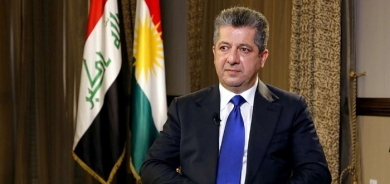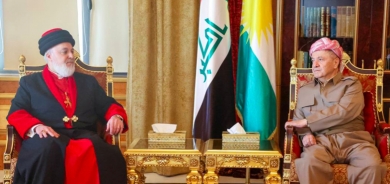Michael Knights to Gulan Magazine:I think this political crisis is going to end until the next national elections
February 27, 2012
Exclusive Interviews

Michael Knights is an associate fellow at the Washington Institute for Near East Policy, specializing in the military and security affairs of Iraq, Iran, and the Arab Gulf Countries.The Professor Knights has visited Iraq and the Gulf countries continuously as being a Pentagon Consultant, and he was one of the team members since 1990 that collected information about Iraq, and he also studied the lessons the United States conducted in both military processes against Iraq in 1990 and up to the day. The Professor Knight is currently at Washington Institute for Near East Policy and is one of the prominent researchers on Iraq. Regarding to the current situations of Iraq and the withdrawal of the US Forces, we have contacted the Professor Knight and addressed few questions about the topic described above, and he replied to our questions in an exclusive interview to Gulan Magazine as the following:* The complicated situation of Iraq is leading Iraq to violence and civil war again since the Sunnis have come out of the political process and recently they decided to be back to parliament only. So according to you to what extend Iraq's future will be in danger if Iraq returns back to instability?
- There is very little chance for the return to the level seen in 2006-2007 Iraq has a far stronger central government than it did in 2006-2007, the centralized control of security forces in the last two or three years with new war spikes in violence the violence increased for two to three months in two to three provinces at the time now they have never called the general collapse of stability in the country. So even now when it goes through a bad phase since US departure it unlikely that there will be a general collapse of the government or a civil war if we look at the silly political fractions at the present time they begin to split into two camps one camp are the speaker of parliament somehow Nujaify, that seems to be work with Maliki in the long term, some of their ministers will continue to intend the cabinet and some others will attend parliament. If you look at the other side which is the older leaders of the Iraqia like Tariq Al-Hashimi by increasingly kindly difficult to work them out but Maliki is might be suggested at the current time to split them even further by perhaps holding back from (3:6 min – 3:10 min) to continue as a finance minister dropping his attend to get Mr. Mutlag and leaving Tariq Al- Hashimi for the locals. I think that Maliki is going to prevail in his count put process and remain on top and that means that we are going to see more violence in Iraq in 2012 but I don’t think we will see so much that the country collapses or there is a true civil war again.
* Many experts think that so as to have Iraq going back to the normal situation the Sunni and sheet aspects should cooperate and have dialogue with each other but Iraqi prime minister refuses it, so to what extend refusing dialogue complicates the situation?
- Prime minister Maliki does not really sent to have a national conference he has all the thing he needs he has the security forces, he gets budget coast through the parliament which everybody needs so why did he needs a national conference I think that this problem will not go away and the political problem at the moment or just reduce in intensity and keep bubbling away throughout the year really I think this political crisis is going to end until the next national elections we could say after the next elections new political view come together and I think the outcome that prime minister will get the whole favors around him and he will add a number of Sunni Arab groups into his correlation and he will pull together enough people that a nationalist correlation that he will be able to continue to rule the country so its tradition (5:50 – 5:53) to have conferences and to direct consolation and to bring everyone back into the tent I don’t think Maliki playing by those rules anymore I think he really serious about forming the majority government in which some people are members of the government and some factions are outside the government. Since 2003 when you done a consensus for a government were everybody is in the government and everybody has many strains and everyone is in the cabinet and so in that way you can talk your problem and search for solutions. I think Maliki is trying to change the rules of the game at the moment and I think he got a strong support from the US government he will probably succeed and the reason for his succeed is because Sunni parties are not united if the Sunni parties stop together and if they stop together with Kurds and Masoud Barzani has been very strong very firm on this issue and he is really stood up to Maliki in this conscious but the problem is not the Kurds the problem is the Sunni parties are not united and they are split enough and this is a problem since 2003 which is very little solidarity in the Sunni Arab parties.
* The US should also relate its supports to the Iraq for the Iraqi government; do you think that US can pressure the Iraqi government?
- I think the US government could bring a lot of influence on to Iraqi federal government but it doesn’t want to at the moment the us embassy in Baghdad which supports Maliki when Maliki came to Washington the US government did not criticized him in any way related to the control of the security forces or the judiciary the federal court any of the things that the US government would usually say about other countries it didn’t say about Iraq so really Maliki got a cops from Obama administration when he visited Washington and the US embassy in Baghdad has really saying that Maliki’s way out of these crisis is right to form a majority government in which some people are in the government and the other people are outside the government. You know the US government has a lot of influence but at the moment I think it agrees with Maliki and that’s really the problem.
Transcription: Mahmud Samih















